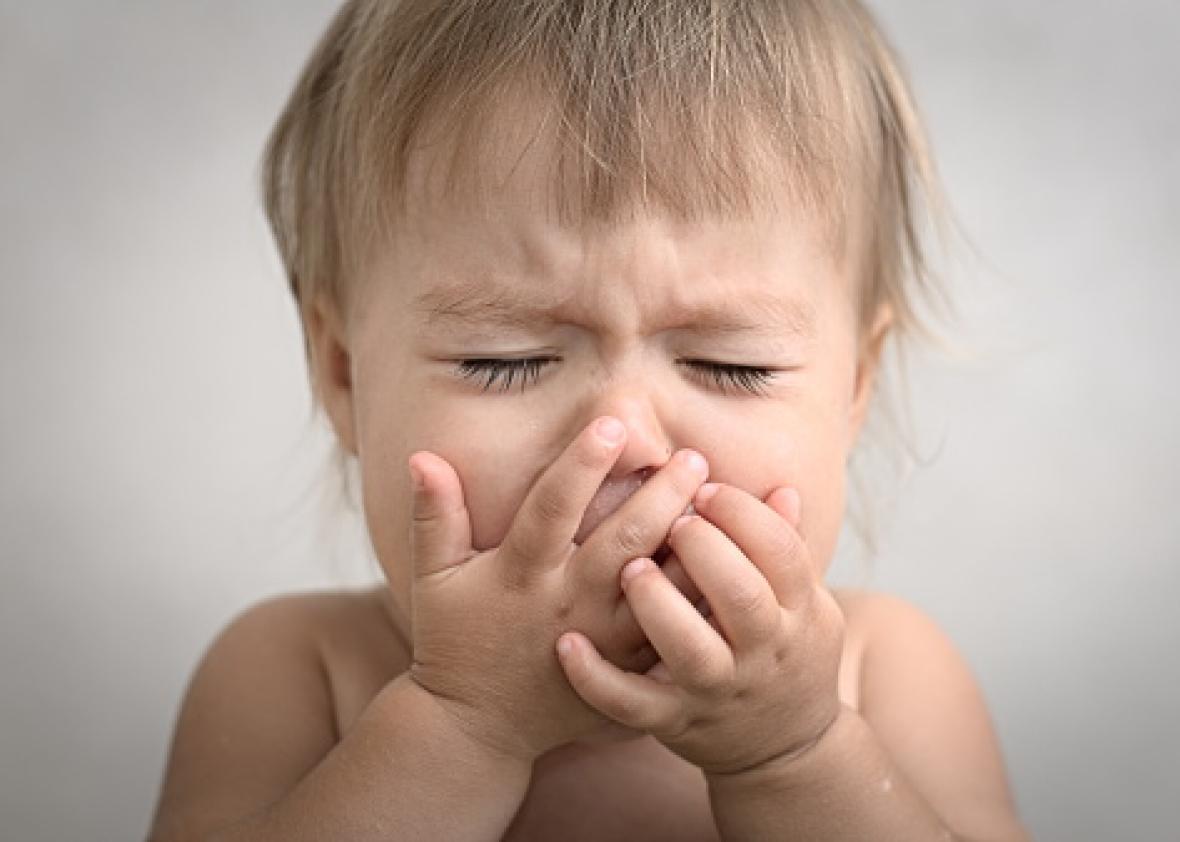The front of a box of Hyland’s Baby Teething Tablets focuses on the ingredients you won’t find inside it. A bright pink strip contains the phrase “No Benzocaine, Artificial Flavors, Dyes or Parabens,” and a green leaf reinforces the alleged purity of the tablets with the phrase “Natural Relief.” What the box doesn’t advertise is that the tablets contain belladonna, a potentially deadly plant that has a long history of being used as both a painkiller and a poison.
In a recent announcement, the Food and Drug Administration said that it had conducted a laboratory analysis of Hyland’s teething products and found “inconsistent amounts of belladonna, a toxic substance … sometimes far exceeding the amount claimed on the label.” This follows the FDA’s September warning against homeopathic teething tablets, in which the agency warned that they may pose a risk to infants and recommended that parents not give them to their children. Potential side effects, the FDA advised, include “seizures, difficulty breathing, lethargy, excessive sleepiness, muscle weakness, skin flushing, constipation, difficulty urinating, or agitation.”
After the FDA’s warning in September, Hyland’s initially defended the product but then announced it would stop selling its teething tablets in the United States. Now the FDA is asking the company to issue a recall as well, something Hyland’s has yet to agree to. Raritan, another producer of belladonna-based homeopathic products for children, agreed to stop selling its products and recall them in November.
The scariest part of all this is that this isn’t the first time Hyland’s teething medicine has been under review. Back in 2010, the FDA issued a similar warning, encouraging parents to stop giving their children Hyland’s teething tablets and to discard the product. In response, the company recalled the product and put out a new, allegedly safer formula the following year. A spokesperson for the FDA recently told CNN that, since then, it has received more than 400 reports of adverse events linked to products containing belladonna and is aware of 10 deaths during that time period that may be linked to homeopathic teething products.
Mary C. Borneman, a spokeswoman for Hyland’s, responded by saying her employer stands by the safety of its products and has yet to be convinced of any potential risks based on the data provided by the FDA. She appears to see this whole fiasco as a mixture of inconvenience and Trumpian carnage, telling CNN, “They are a top-selling product and a consumer favorite, and sadly it resulted in the loss of 24 jobs.” (Idea: Rehire those people and place them in your quality control department.)
The homeopathic and alternative medicine market is one worthy of deep skepticism. Currently, the FDA does not have the authority to evaluate claims made by manufacturers of these drugs before they hit the market. This paves the way for snake-oil merchants to clog up the aisles of our pharmacies, often cloaking the ineffectiveness, or, worse, danger, of their products with the seemingly unimpeachable phrase “all natural.” Nevertheless, the alternative medicine has become a $50 billion industry, one fueled largely by a mistrust of the medical establishment, as Alexander Aciman recently wrote about for Vox.
Mothers of young children are particularly vulnerable to this paranoid mindset. The preference for “all-natural” teething products is in line with the mindset that makes a growing number of women believe they are safer giving birth at home, that formula is always the enemy, and that vaccinations are dangerous. One reason so many moms oppose medical and technological interventions is because it gives them a sense of identity and purpose in a culture that doesn’t otherwise value caretaking. By exaggerating and/or inventing the threats modernity poses to our children, these women create a sense of agency and power within the narrow role afforded to them as mothers. Instead of putting that energy into fighting for more freedom as parents—whether by pushing for more accommodating workplaces, advocating for guaranteed leave and childcare, or simply liberating themselves from a life of worrying about their children all the time—they bunker down.
One would hope that the FDA’s latest findings will inspire all parents to stop giving their babies teething tablets containing belladonna and to maintain a healthy dose of skepticism towards all homeopathic and alternative treatments from here on out. This is probably not going to happen. As Slate’s Alan Levinovitz recently pointed out, “When people make big bets on miracle cures that fail to work, they rarely turn against the treatments or their merchants. Instead, they rationalize their misplaced faith, in order to save face, remain hopeful, and preserve an identity that’s defined by their courageous ability to reject the status quo.” Because what’s a little belladonna when your entire identity is on the line?
